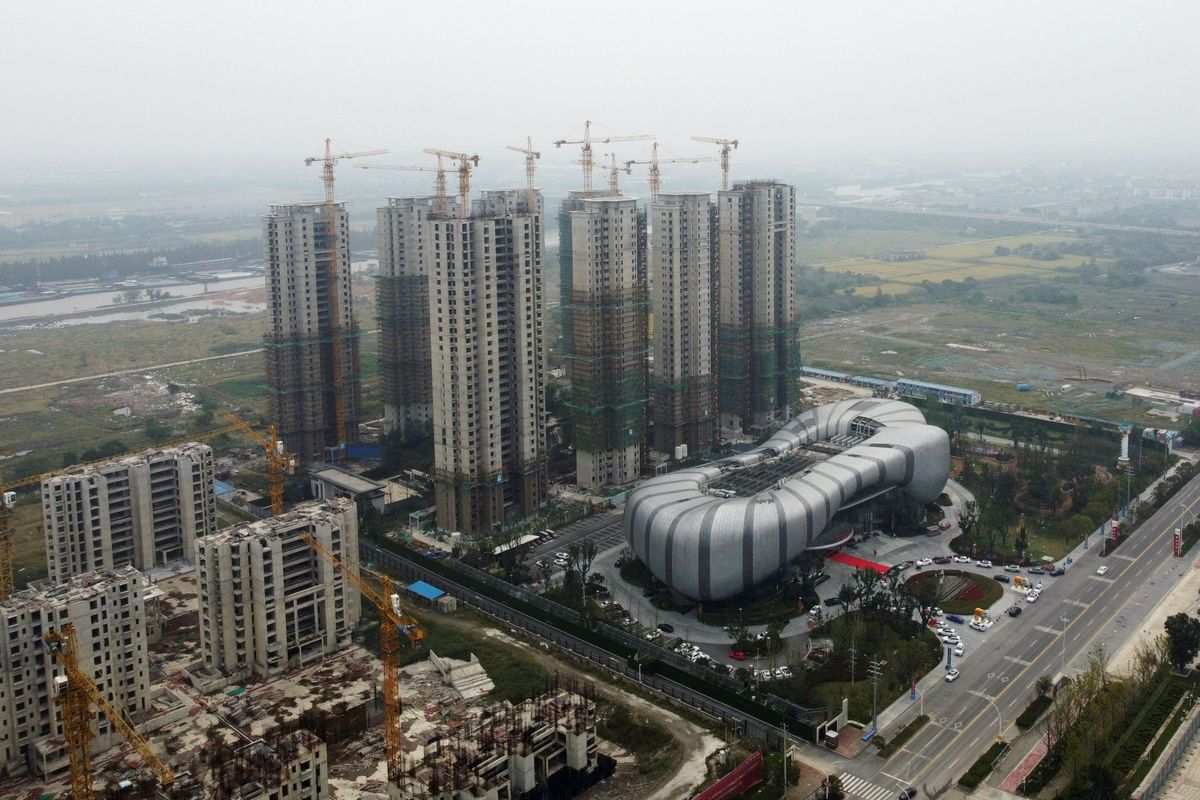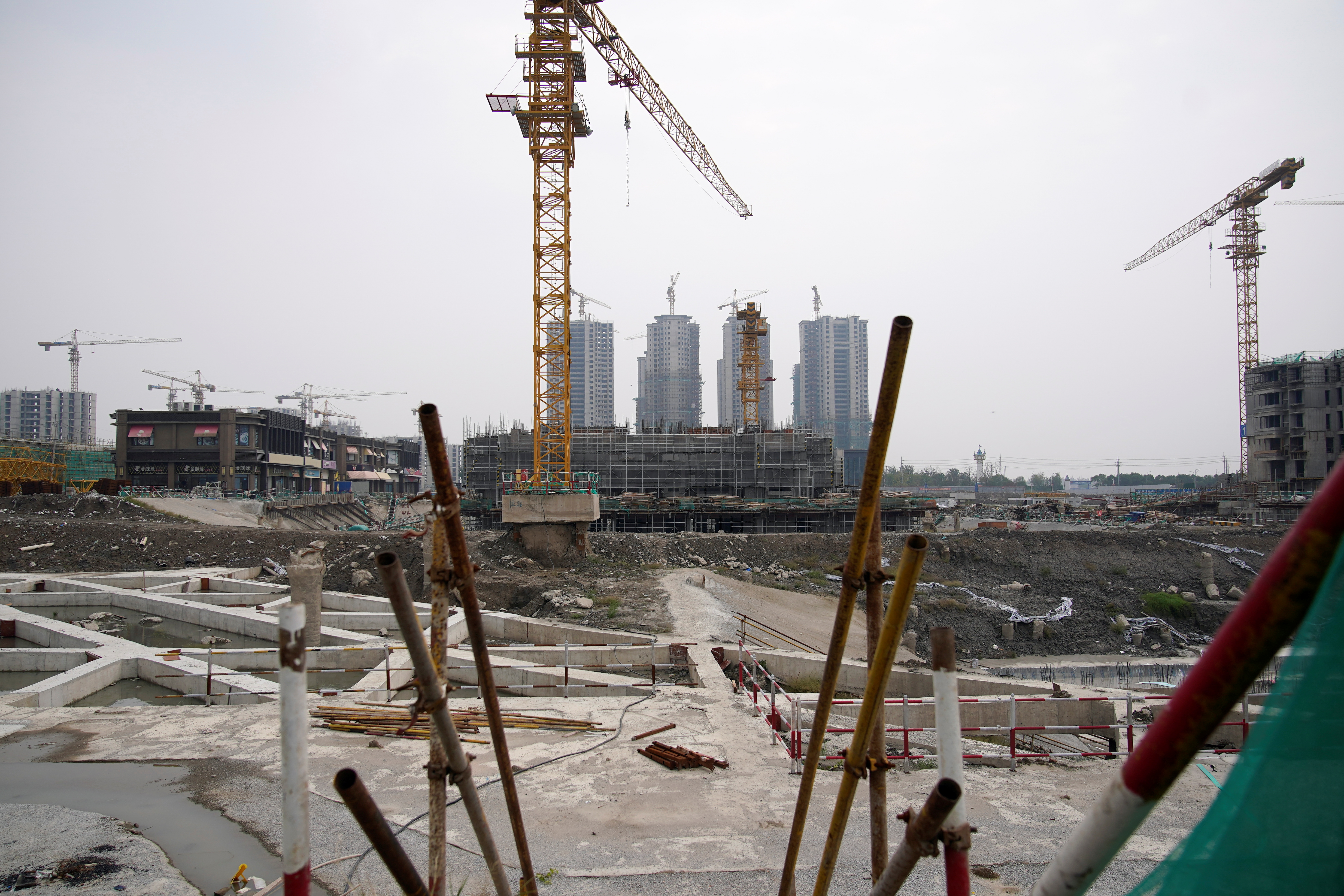What do China’s real estate industry troubles mean for the US economy?

A few minutes every morning is all you need.
Stay up to date on the world's Headlines and Human Stories. It's fun, it's factual, it's fluff-free.
The thing is though, China’s real estate market has been called the most important industry in the global economy and accounts for about 30% of China’s GDP. Just for a bit of context, 10%-20% is the typical industry composition for most developed nations.
What troubles?
- Right now, China’s real estate industry is struggling, with China Evergrande Group at the forefront of the sector’s troubles.
- Since 2001, China’s population has gone from only 3% in the middle class to around 50%. But the rate at which people are moving into this socioeconomic class has slowed down.
- This slowed-down growth rate, combined with other factors, such as the pandemic, means that people in China are suddenly buying a lot fewer houses than real estate companies like Evergrande thought they would be right now.
- What’s happened, though, is that now many of these real estate developers have properties built and half finished, and they’ve developed these projects with borrowed money.
- So now, because these companies have much fewer prospective buyers, they’re struggling to generate the revenue needed to pay off their debts.
- For example, Evergrande, has around US$300 billion worth of debt that it could potentially default on if they can’t generate enough cash.

What will these real estate developers’ troubles do to China?
- Well, there are several things to look at.
- Some people have already bought properties from these developers, paying deposits to secure their places. But, because right now, some of these property developments aren’t complete, with some of these developers’ suppliers stopping work because they haven’t yet been paid, if these developers do go bust, then these people will lose their money.
- Another issue lies with investor confidence in China. For example, if Evergrande goes down without much warning and without help from the government, investors could see China as an unsafe place to invest.
- Since real estate is used as collateral for many loans, these asset values used as collateral would also plummet if real estate companies default. Specifically for Evergrande, the company reportedly owes money to around 171 domestic banks and 121 other financial firms.
- And so, if Evergrande defaults and the prices of these properties drop, banks and other lenders may be forced to lend less, which will lead to what’s called a credit crunch in the Chinese economy.
- This is when companies can’t borrow at affordable rates because lenders themselves are struggling. This would hurt China’s gross domestic product (GDP) overall because businesses may struggle to borrow money to finance their growth or keep their doors open.
Anything else?
- There are ripple effects throughout the economy for all the suppliers and partnering companies that do business with the real estate developers, from material suppliers to interior design firms.
- According to Dr. Tenpao Lee, an economics professor at Niagara University in New York, the housing market is a “key point” for the rest of the economy.
- “When you buy a house, you will need to buy everything to furnish the house,” he said. “You need to buy a refrigerator, you need to buy a sofa, you need to buy an air conditioner, everything.”
- From the people who make the refrigerators to those who make the sofas and the air conditioners – the industry’s troubles has a wide-reaching effect on the whole economy.
What about outside of China?
- There’s a lot less consensus on what exactly might happen to other economies if these real estate developers aren’t helped by the Chinese government.
- According to a report by the United States Federal Reserve released on November 11, a Chinese financial crisis could affect the American economy. “Financial stresses in China could strain global financial markets through a deterioration of risk sentiment, pose risks to global economic growth, and affect the United States.”
- But others think that the somewhat closed-off Chinese economy means that the effects of a collapse won’t go far beyond the country’s borders.
- According to MSNBC financial commentator Jim Cramer, the impact on the US economy won’t be big.
- “I don’t think the Evergrande fiasco will do serious damage to the US economy,” he said, “even as there are some groups that could get hit, but it does give investors a great excuse to do some selling,”
- And according to Joseph Sternberg, a columnist on The Wall Street Journal editorial board, “The explosion would detonate within the concrete bunker of China’s closed financial system, which will dampen if not entirely mute any shock waves.”
What’s next?
- Well, no one really knows because the Chinese government have kept very quiet on the whole thing. The only public comment they’ve made so far is urging Evergrande’s founder Xu Jiayin, to use his own personal wealth to pay off the company’s debts.
- The thing is though, China’s real estate market has been called the most important industry in the global economy and accounts for about 30% of China’s GDP. Just for a bit of context, 10%-20% is the typical industry composition for most developed nations.
- According to Sternberg, though, this whole fiasco has proved to the Chinese government that it needs to be less reliant on the property sector for overall economic prosperity.
- “China finds itself grappling with a problem—how to wean itself off property permanently—that may confront many other economies sooner or later,” he said.
- But as is often the case in these kinds of situations, the only true way to tell what will happen is to wait and see.
You drive the stories at TMS. DM us which headline you want us to explain, or email us.







Comments ()